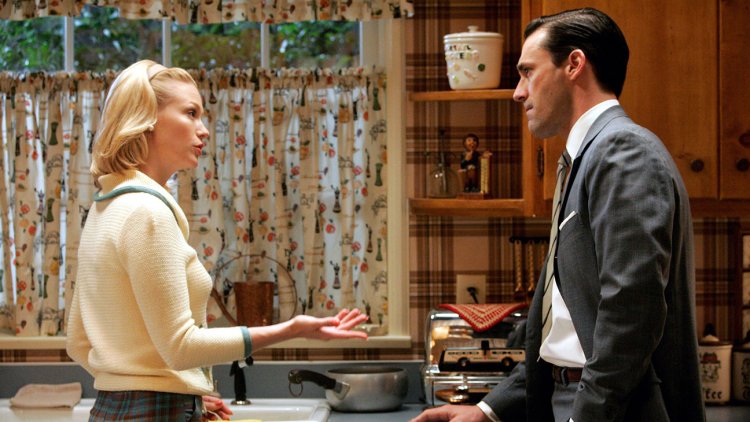Mad Men (2007)
Welcome to our comprehensive guide on "Mad Men," the critically acclaimed television series that debuted in 2007. In this article, we delve into the captivating world of this iconic show, exploring its compelling characters, intricate plotlines, and the cultural impact it has made. Get ready to immerse yourself in the intriguing realm of "Mad Men."

Setting the Stage
"Mad Men" is set in the fast-paced world of advertising in the 1960s, offering viewers a glimpse into the glamorous and cutthroat atmosphere of Madison Avenue. The series artfully captures the era's social, cultural, and political dynamics, providing a rich backdrop against which the characters' stories unfold.
Unveiling the Characters
-
Don Draper: The enigmatic and charismatic creative director, Don Draper, serves as the show's central character. With his complex personality, enigmatic past, and undeniable talent, Don becomes a captivating figure who navigates the demands of the advertising industry while grappling with personal demons.
-
Peggy Olson: As a young and ambitious copywriter, Peggy Olson represents the changing role of women in the workplace during the 1960s. Her journey from an inexperienced newcomer to a formidable professional offers a compelling exploration of gender dynamics and personal growth.
-
Joan Holloway: Joan, the office manager known for her confidence and allure, showcases the challenges faced by women in a male-dominated industry. Her character evolves throughout the series, highlighting the complexities of power, ambition, and societal expectations.
Exploring Themes
-
Identity and Self-Image: "Mad Men" delves into the theme of identity, exploring how individuals construct and present themselves in a society that values appearances. The characters grapple with their personal identities, often masking their true selves behind carefully crafted facades.
-
Social Change and Cultural Shifts: The series skillfully examines the evolving social landscape of the 1960s, delving into issues such as civil rights, feminism, and the impact of historical events on the characters' lives. By intertwining the personal and the political, "Mad Men" offers a nuanced portrayal of a transformative era.
-
Consumerism and Advertising: Given its advertising industry backdrop, the show delves into the manipulative nature of consumerism and the role of advertising in shaping desires and aspirations. It raises thought-provoking questions about the ethics and consequences of selling dreams.
Intricate Plotlines
"Mad Men" weaves intricate and interconnecting plotlines, delving into the personal and professional lives of its characters. The show masterfully balances moments of tension, drama, and introspection, creating a narrative that keeps audiences engrossed and eager for more.
Cultural Impact
The cultural impact of "Mad Men" cannot be overstated. The series not only garnered critical acclaim but also sparked a widespread fascination with the fashion, style, and societal norms of the 1960s. Its meticulous attention to detail, from set design to costume choices, contributed to its authentic portrayal of the era and solidified its place as a cultural phenomenon.
Also Check Bitcoin's value keeps decreasing!
Conclusion
In conclusion, "Mad Men" (2007) is a groundbreaking television series that immerses viewers in the captivating world of advertising in the 1960s. With its complex characters, thought-provoking themes, and meticulous attention to historical detail, the show transcends mere entertainment. "Mad Men" offers a lens through which to examine the intricacies of identity, social change, and the power of advertising. Prepare to be captivated by the timeless allure of "Mad Men" as it transports you to a bygone era of ambition, glamour, and introspection.




























